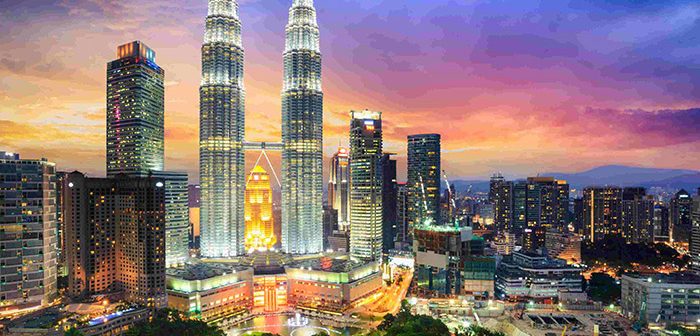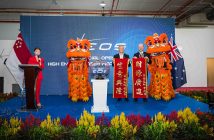
Malaysia’s Institution of Geospatial and Remote Sensing Malaysia (IGRSM) is among a dozen organisations calling for a reconsideration of an amendment to the country’s Licensed Land Surveyors Act (1958).
The Legislative Bill D.R. 2/2024 to amend the Licensed Land Surveyors Act (1958) (Akta Juruukur Tanah Berlesen 1958) was approved by the Dewan Rakyat on 25 March 2024 and the Dewan Negara on 4 April 2024.
The legislative amendment prevents non-licensed land surveyors (LLS) from conducting geomatic surveys, meaning anyone who is not registered as a LLS with the Land Surveyors Board (LJT) can no longer participate in geomatics surveys.
IGRSM says they only became aware of this legislative amendment when it was tabled in the Dewan Rakyat in March. IGRSM says that several key stakeholders were not consulted on the amendment, even though it would have tremendous consequences for them.
Geomatics involves the measurement, collection, analysis, interpretation and management of spatial data about the Earth’s surface, subsurface and space. New graduates from various fields who have studied geomatics courses will also be restricted from conducting geomatics surveys.
According to the legislative amendment, professionals conducting geomatics surveys who are not LLS can be considered to be committing an offence and can, on conviction, be liable to a fine not exceeding MYR250,000, imprisonment for a term not exceeding three years, or both. Malaysia’s geomatics industry is expected to reach MYR10.19 billion by 2030.
Global geospatial analytic trends suggest Malaysia’s geomatics sector is poised for substantial growth. This growth potential indicates a thriving market environment that could see increased investment, innovation and adoption of geomatics technologies across Malaysia.
In addition to IGRSM, the organisations calling for reconsideration of the amendment include the National Hydrographic Association (Malaysia); Malaysian Society of Soil Science: Institute of Electrical and Electronics Engineers; Geoscience and Remote Sensing Society (Malaysia Chapter); Malaysian Society of Agricultural and Food Engineers; Institute of Geology Malaysia; Agricultural Institute of Malaysia; Institute of Foresters Malaysia; International Institute of Plantation Management; Malaysian Society for Engineering and Technology; Malaysian Institute of Planners; and Institute of Landscape Architects Malaysia.
The organisation understands that the Ministry of Natural Resources and Environmental Sustainability conducted engagement sessions on the legislative amendment in 2020 with a few professional boards and government departments. In addition, a survey was conducted through the Malaysian Productivity Corporation’s (MPC) web portal from December 18, 2020, to January 15, 2021.
The organisations conducted discussion sessions with 41 relevant stakeholders in June and July 2024. Of these stakeholders, 38 stated that their organisations were unaware of the legislative amendment. They were neither informed nor invited to the engagement sessions conducted by the LJT in 2020, even though it significantly impacts their industries. The organisations say the absence of these stakeholders in the engagement sessions raises serious concerns about how the government considered industry requirements and views during the amendment process.
The other three organisations, namely the Board of Engineers Malaysia (BEM), Board of Architects Malaysia (BAM) and Board of Town Planners Malaysia (LPBM), stated that they were involved in the engagement sessions with LJT, but they did not express support for the amendment of the act as approved.
In addition, all 41 stakeholders stated that they did not receive any notice regarding the survey in the MPC portal. This raises questions about the effectiveness of information dissemination and the openness of this process to all parties involved
The legislative amendment stipulates a six-month transitional period for non-LLS geomatics professionals to register with LJT. However, from the organisation’s observations, professionals seeking registration must also meet the requirements for LLS registration, which is almost impossible to fulfil.
IGRSM says policies restricting geomatics surveys solely to LLS can negatively impact Malaysia’s national development. The requirement to appoint LLS for every type of geomatic measurement task can potentially increase project costs and delay project schedules due to the lack of available surveyors.
The organisations further argue that the very broad definition of geomatics in the legislative amendment and the restrictions on geomatics surveys would severely affect Malaysia’s economy. The amendment would add a greater layer of bureaucracy, impact competitiveness, and the ease of doing business in Malaysia.
IGRSM is concerned that LLSs would monopolise geomatics surveys in these categories, impacting the livelihoods of numerous companies and professionals.
The organisations have asked the Ministry of Natural Resources and Environmental Sustainability for feedback on engagement sessions and surveys. However, they have yet to receive a response.
In view of this, all 12 professional organisations have submitted a joint memorandum to the Minister of Natural Resources and Environmental Sustainability.
They ask for reconsideration of the Licensed Land Surveyors Act (1958) amendment. The organisations say that engagement sessions and extensive discussions with all stakeholders should be conducted to ensure a more balanced and comprehensive amendment. This would ensure that the industries involved can continue to function effectively and innovatively and that the development and stability of the country’s economy are not adversely affected.





